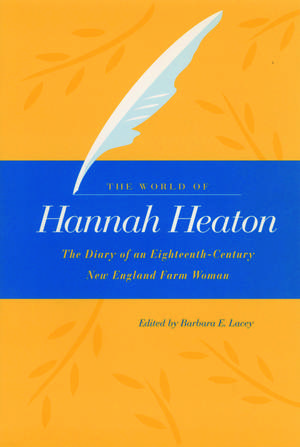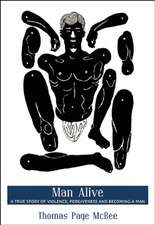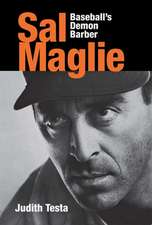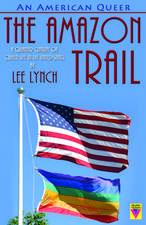The World of Hannah Heaton: The Diary of an Eighteenth-Century New England Farm Woman
Autor Hannah Heatonen Limba Engleză Hardback – 4 mar 2003
An ordinary eighteenth-century New England woman, Hannah Heaton left an extraordinary document as her legacy. Over a period of 40 years, from the Great Awakening through the Revolutionary War, this farm wife and mother kept a diary recounting her experiences. Now published for the first time, Heaton's diary offers an unparalleled revelation of one American woman's experience of the birth of the nation.
Much of her diary records Heaton's spiritual struggles, beginning with her conversion during the Great Awakening and her separation from the established Congregational church. Pious by nature, she recalls her childhood fears of the devil, who at night tempted her away from prayer and told her in a whisper to hang herself. Deeply concerned over her own salvation and that of those she loved, Heaton found comfort in the act of writing, feeling that such self-examination brought her closer to God.
Hannah Heaton was devoutly religious and intensely self-aware. Spiritually isolated from her husband and children, and often at odds with her neighbors and church community, she found solace in her journal, which was at times her only friend. She loved her husband deeply, but nonetheless regretted marrying a nonbeliever and yearned for him to become a true spiritual partner. He tolerated her religious convictions but occasionally grew frustrated and even hid her spectacles so that she could not read the Bible.
A staunch patriot, Heaton carefully recorded her impressions of the Revolutionary War. Believing the fight for independence was part of God's plan, Heaton, who before the war had scarcely taken note of the political world around her, began to write at length about imperial policy and military engagements. As she wrote of the national struggles, however, she remained equally interested in the intricate details of her own private life: her relationships with kinfolk and neighbors, her domestic struggles, and her personal experiences with disease and death. Heaton's unabridged diary, edited and annotated by Barbara E. Lacey, is an extraordinarily valuable source for scholars and students of colonial history, women's studies, and religion in America.
Much of her diary records Heaton's spiritual struggles, beginning with her conversion during the Great Awakening and her separation from the established Congregational church. Pious by nature, she recalls her childhood fears of the devil, who at night tempted her away from prayer and told her in a whisper to hang herself. Deeply concerned over her own salvation and that of those she loved, Heaton found comfort in the act of writing, feeling that such self-examination brought her closer to God.
Hannah Heaton was devoutly religious and intensely self-aware. Spiritually isolated from her husband and children, and often at odds with her neighbors and church community, she found solace in her journal, which was at times her only friend. She loved her husband deeply, but nonetheless regretted marrying a nonbeliever and yearned for him to become a true spiritual partner. He tolerated her religious convictions but occasionally grew frustrated and even hid her spectacles so that she could not read the Bible.
A staunch patriot, Heaton carefully recorded her impressions of the Revolutionary War. Believing the fight for independence was part of God's plan, Heaton, who before the war had scarcely taken note of the political world around her, began to write at length about imperial policy and military engagements. As she wrote of the national struggles, however, she remained equally interested in the intricate details of her own private life: her relationships with kinfolk and neighbors, her domestic struggles, and her personal experiences with disease and death. Heaton's unabridged diary, edited and annotated by Barbara E. Lacey, is an extraordinarily valuable source for scholars and students of colonial history, women's studies, and religion in America.
Preț: 477.06 lei
Nou
Puncte Express: 716
Preț estimativ în valută:
91.28€ • 95.56$ • 75.53£
91.28€ • 95.56$ • 75.53£
Carte tipărită la comandă
Livrare economică 05-19 aprilie
Preluare comenzi: 021 569.72.76
Specificații
ISBN-13: 9780875803128
ISBN-10: 0875803121
Pagini: 375
Dimensiuni: 152 x 229 x 33 mm
Greutate: 0.69 kg
Ediția:1
Editura: Northern Illinois University Press
Colecția Northern Illinois University Press
ISBN-10: 0875803121
Pagini: 375
Dimensiuni: 152 x 229 x 33 mm
Greutate: 0.69 kg
Ediția:1
Editura: Northern Illinois University Press
Colecția Northern Illinois University Press
Recenzii
"Heaton's powerful portrait is one of a kind. It opens a window into a woman's consciousness and conscience, illuminating her complex, tormented inner life. This marvelous text is full of riches."—Michael McGiffert, College of William and Mary
"Hannah Heaton's rare and wonderful diary is a great boon to scholars of early America, gender and family relations, and popular religion."—Cornelia Hughes Dayton, University of Connecticut
"Hannah Heaton's rare and wonderful diary is a great boon to scholars of early America, gender and family relations, and popular religion."—Cornelia Hughes Dayton, University of Connecticut
Notă biografică
Barbara E. Lacey is Professor of History and Co-Director of the American Studies Program at Saint Joseph College. She lives with her husband, Jim, in northeastern Connecticut.
Cuprins
Table of Contents
Foreword by James W. Campbell
Introduction
1. 1721-1740: Childhood Memories—A Young Girl
2. 1741-1749: The Great Awakening—Her Conversion—Her Twenties
3. 1750-1759: French and Indian War—Encounters with Satan—Trial for Breach of the Sabbath—Her Thirties
4. 1760-1769: Dissenting Ministers—Her Forties
5. 1770-1775: Sermons—The Moses Paul Execution—Beginnings of the American Revolution—Her Early Fifties
6. 1776-1779: Her Sons and the Revolution—Her Late Fifties
7. 1780-1789: Her Reading—Hopes for the Second Coming—Her Sixties
8. 1790-1793: Her Husband's Death—Revivals—Final Thoughts—Her Seventies
Appendix: Letters to and from Family and Friends, 1750-1792
Notes
Index
Introduction
1. 1721-1740: Childhood Memories—A Young Girl
2. 1741-1749: The Great Awakening—Her Conversion—Her Twenties
3. 1750-1759: French and Indian War—Encounters with Satan—Trial for Breach of the Sabbath—Her Thirties
4. 1760-1769: Dissenting Ministers—Her Forties
5. 1770-1775: Sermons—The Moses Paul Execution—Beginnings of the American Revolution—Her Early Fifties
6. 1776-1779: Her Sons and the Revolution—Her Late Fifties
7. 1780-1789: Her Reading—Hopes for the Second Coming—Her Sixties
8. 1790-1793: Her Husband's Death—Revivals—Final Thoughts—Her Seventies
Appendix: Letters to and from Family and Friends, 1750-1792
Notes
Index
Descriere
An ordinary eighteenth-century New England woman, Hannah Heaton left an extraordinary document as her legacy. Over a period of 40 years, from the Great Awakening through the Revolutionary War, this farm wife and mother kept a diary recounting her experiences. Now published for the first time, Heaton's diary offers an unparalleled revelation of one American woman's experience of the birth of the nation.
Much of her diary records Heaton's spiritual struggles, beginning with her conversion during the Great Awakening and her separation from the established Congregational church. Pious by nature, she recalls her childhood fears of the devil, who at night tempted her away from prayer and told her in a whisper to hang herself. Deeply concerned over her own salvation and that of those she loved, Heaton found comfort in the act of writing, feeling that such self-examination brought her closer to God.
Hannah Heaton was devoutly religious and intensely self-aware. Spiritually isolated from her husband and children, and often at odds with her neighbors and church community, she found solace in her journal, which was at times her only friend. She loved her husband deeply, but nonetheless regretted marrying a nonbeliever and yearned for him to become a true spiritual partner. He tolerated her religious convictions but occasionally grew frustrated and even hid her spectacles so that she could not read the Bible.
A staunch patriot, Heaton carefully recorded her impressions of the Revolutionary War. Believing the fight for independence was part of God's plan, Heaton, who before the war had scarcely taken note of the political world around her, began to write at length about imperial policy and military engagements. As she wrote of the national struggles, however, she remained equally interested in the intricate details of her own private life: her relationships with kinfolk and neighbors, her domestic struggles, and her personal experiences with disease and death. Heaton's unabridged diary, edited and annotated by Barbara E. Lacey, is an extraordinarily valuable source for scholars and students of colonial history, women's studies, and religion in America.
Much of her diary records Heaton's spiritual struggles, beginning with her conversion during the Great Awakening and her separation from the established Congregational church. Pious by nature, she recalls her childhood fears of the devil, who at night tempted her away from prayer and told her in a whisper to hang herself. Deeply concerned over her own salvation and that of those she loved, Heaton found comfort in the act of writing, feeling that such self-examination brought her closer to God.
Hannah Heaton was devoutly religious and intensely self-aware. Spiritually isolated from her husband and children, and often at odds with her neighbors and church community, she found solace in her journal, which was at times her only friend. She loved her husband deeply, but nonetheless regretted marrying a nonbeliever and yearned for him to become a true spiritual partner. He tolerated her religious convictions but occasionally grew frustrated and even hid her spectacles so that she could not read the Bible.
A staunch patriot, Heaton carefully recorded her impressions of the Revolutionary War. Believing the fight for independence was part of God's plan, Heaton, who before the war had scarcely taken note of the political world around her, began to write at length about imperial policy and military engagements. As she wrote of the national struggles, however, she remained equally interested in the intricate details of her own private life: her relationships with kinfolk and neighbors, her domestic struggles, and her personal experiences with disease and death. Heaton's unabridged diary, edited and annotated by Barbara E. Lacey, is an extraordinarily valuable source for scholars and students of colonial history, women's studies, and religion in America.











